
Founder of @CleanviewEnergy and Distilled. I make and post a lot of charts to try to better understand the world around me.
Subscribe to my newsletter below:
14 subscribers
How to get URL link on X (Twitter) App

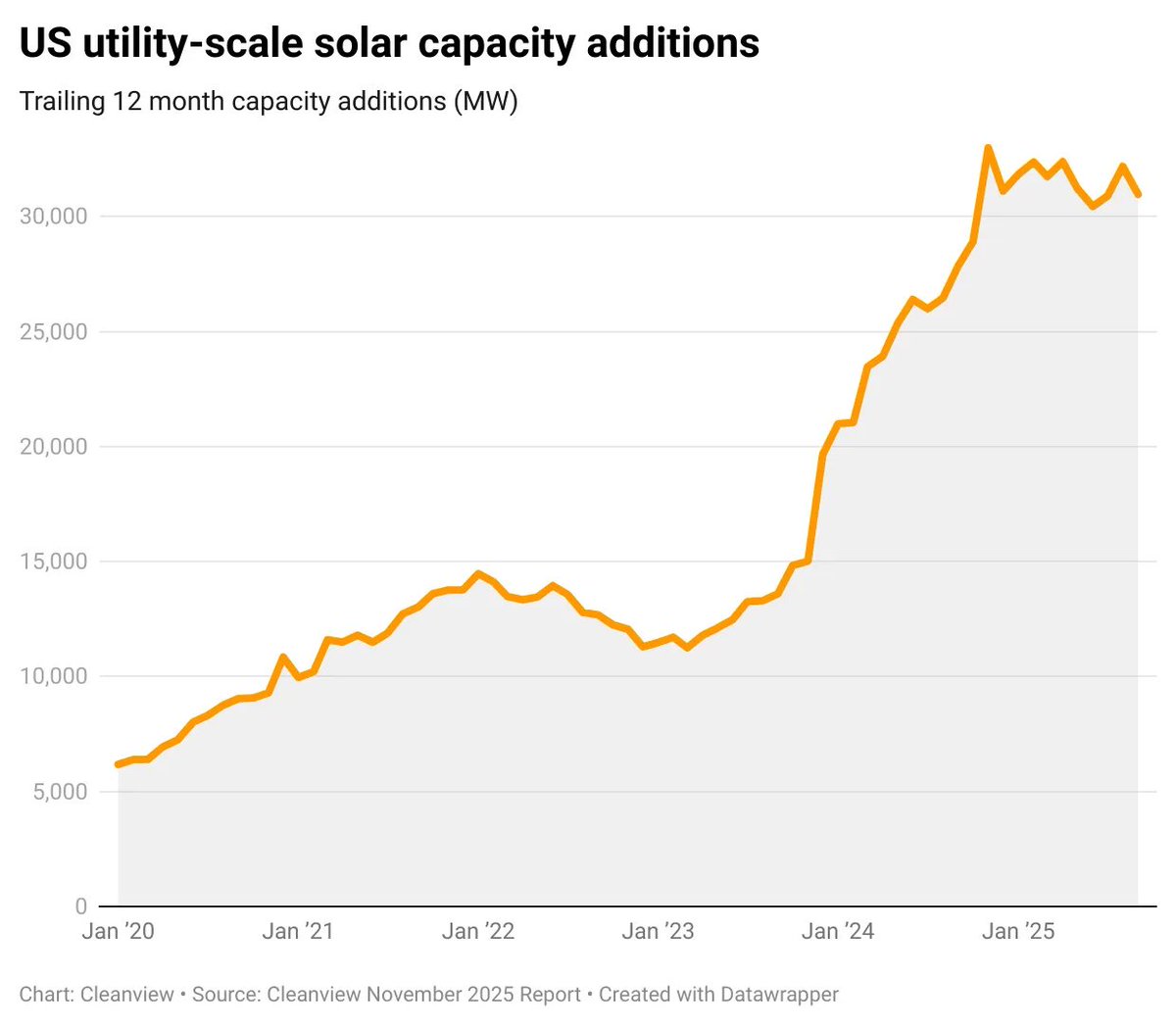

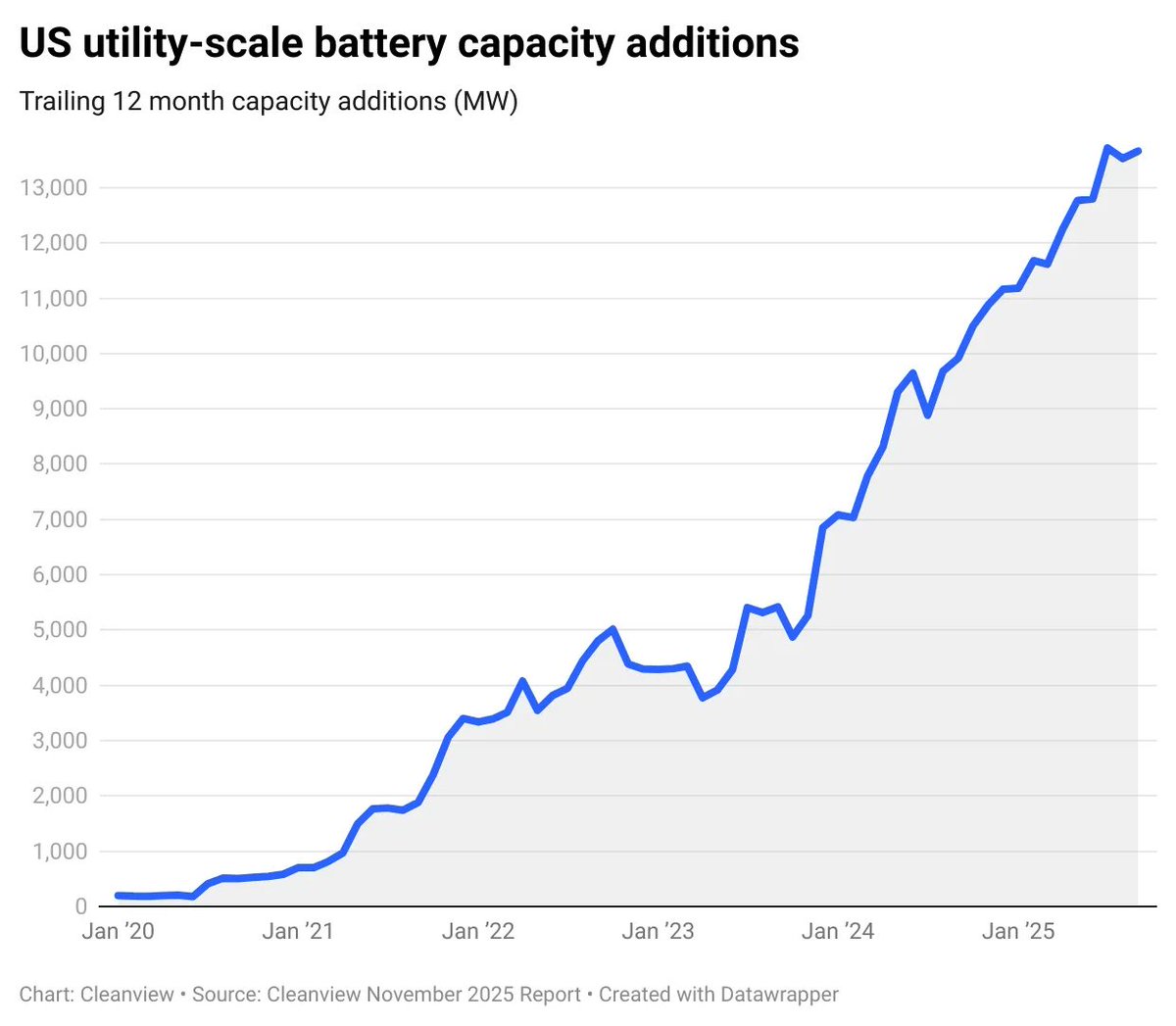
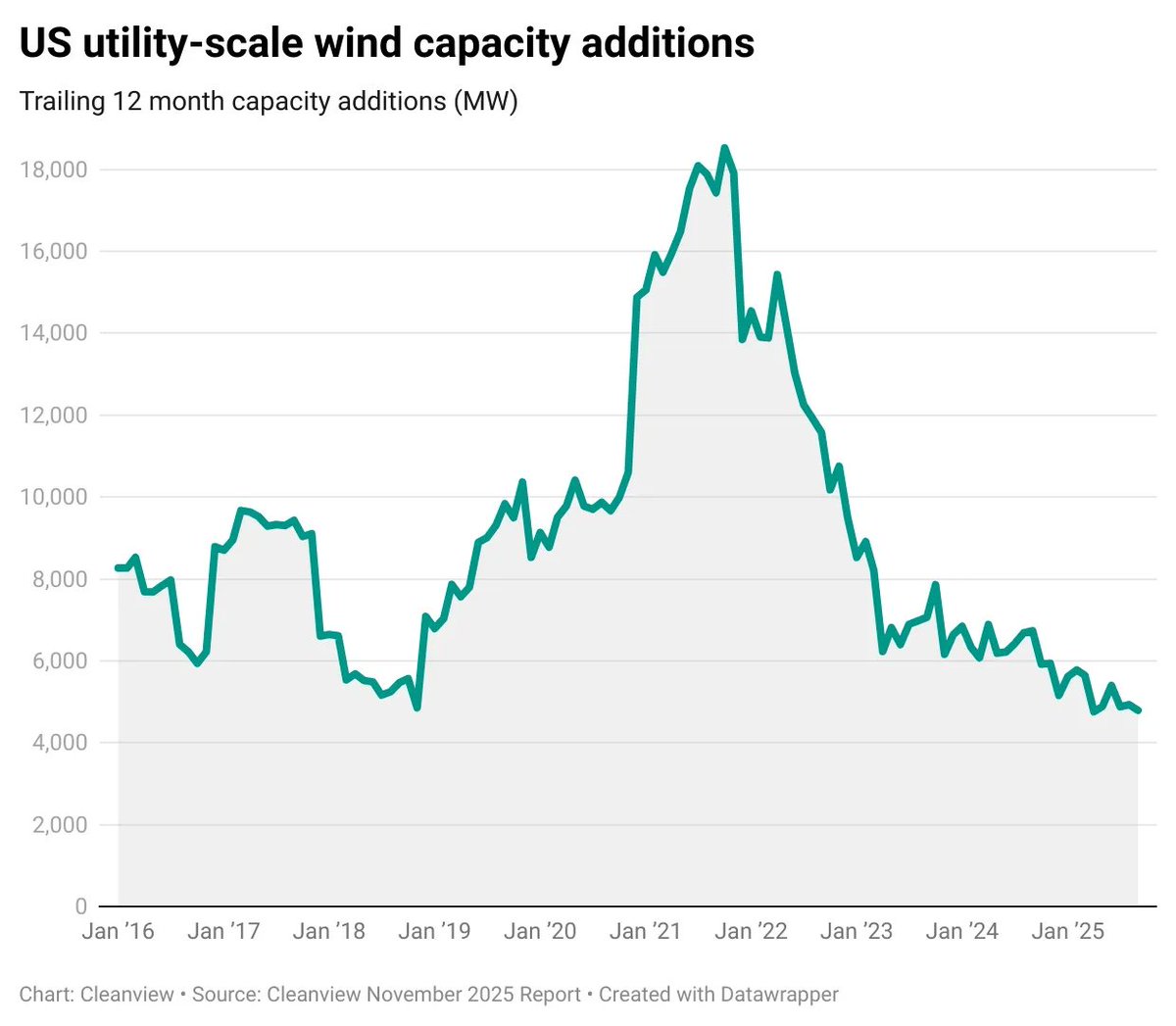
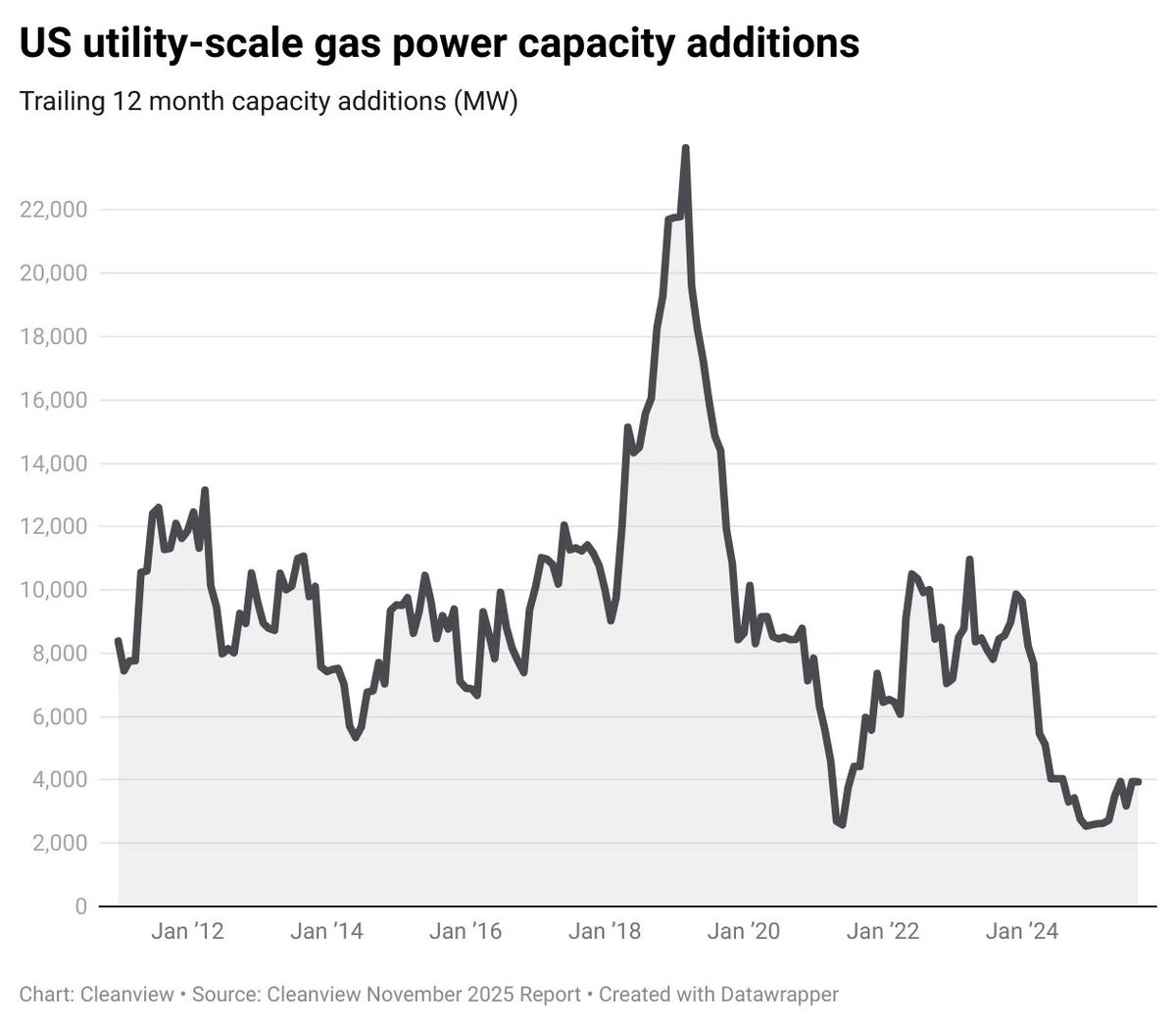 1/ Solar’s growth appears to be slowing.
1/ Solar’s growth appears to be slowing. 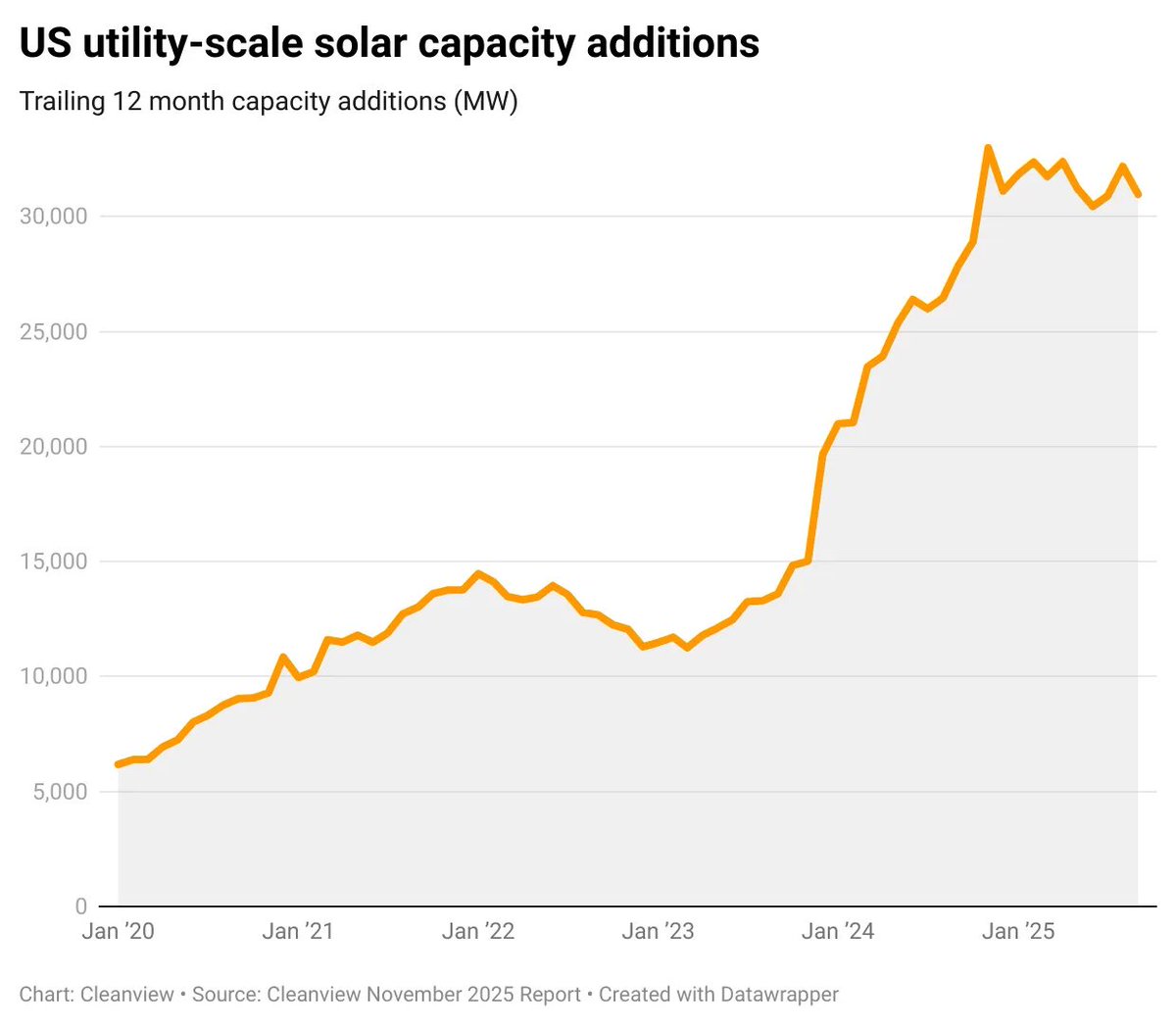

 Just over a year ago, OpenAI's Stargate was nothing more than some permits and a few hundred acres of dirt in West Texas.
Just over a year ago, OpenAI's Stargate was nothing more than some permits and a few hundred acres of dirt in West Texas. 

 1/ State environmental permits
1/ State environmental permits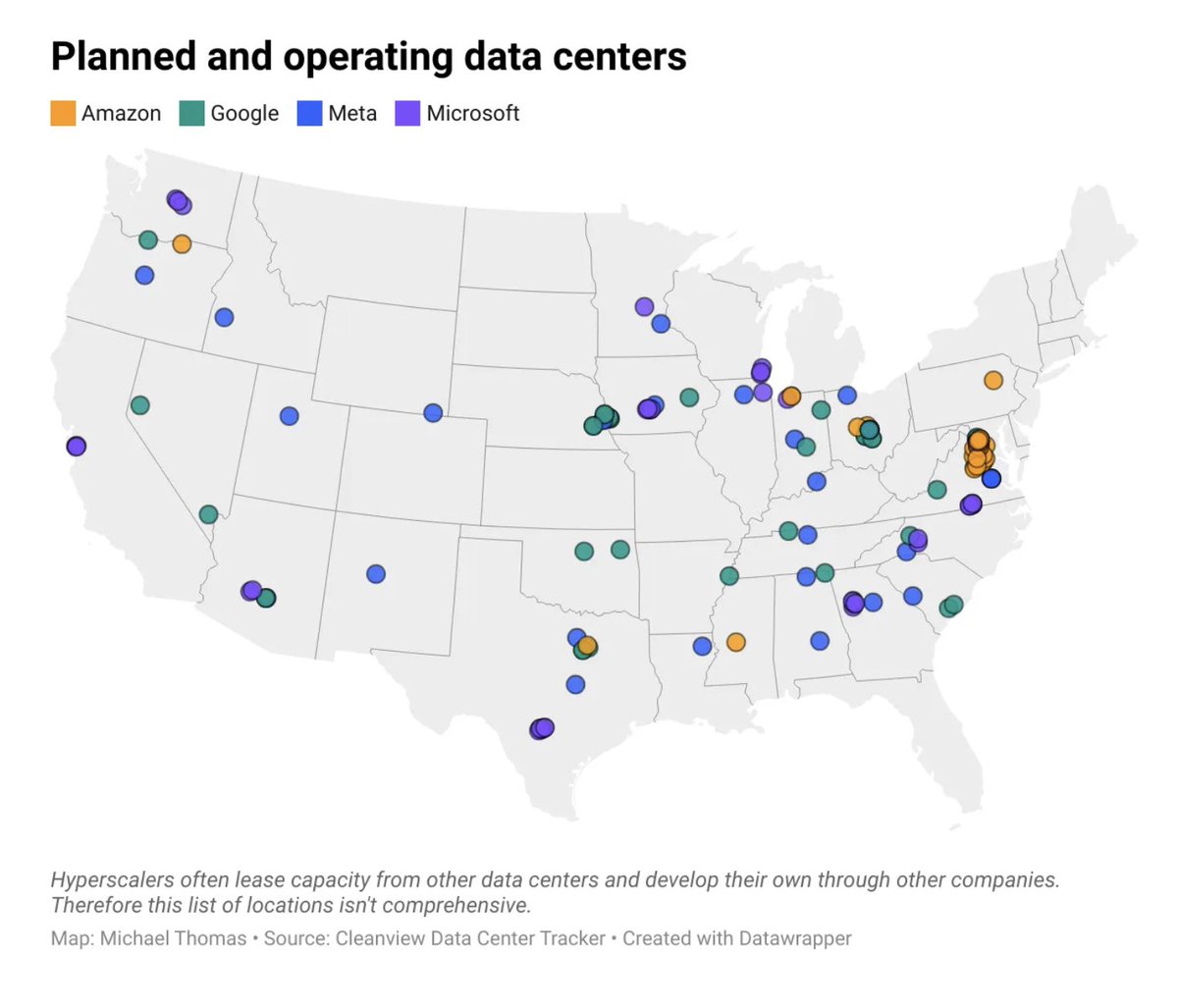
 Since the launch of ChatGPT in November 2022, tech companies have spent huge sums of money building data centers.
Since the launch of ChatGPT in November 2022, tech companies have spent huge sums of money building data centers. 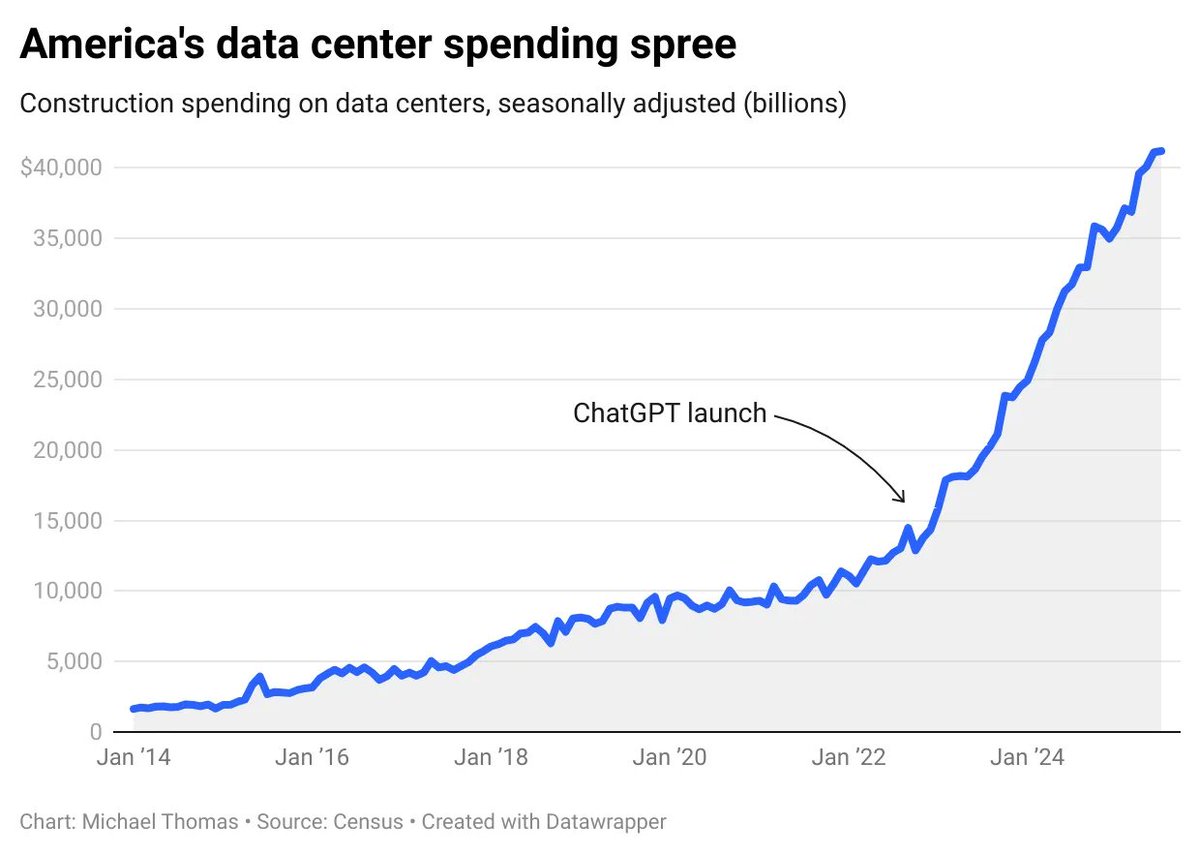

 The main reason for the growth of grid batteries in the US is the falling cost of the technology in recent years.
The main reason for the growth of grid batteries in the US is the falling cost of the technology in recent years. 
 As @AndrewDessler writes in an excellent article (linked in the comments), this chart shows *retail* electricity costs.
As @AndrewDessler writes in an excellent article (linked in the comments), this chart shows *retail* electricity costs. 
 The latest Senate bill would phase out the investment and production tax credits (ITC and PTC) for any project that is placed in service after December 31, 2027.
The latest Senate bill would phase out the investment and production tax credits (ITC and PTC) for any project that is placed in service after December 31, 2027.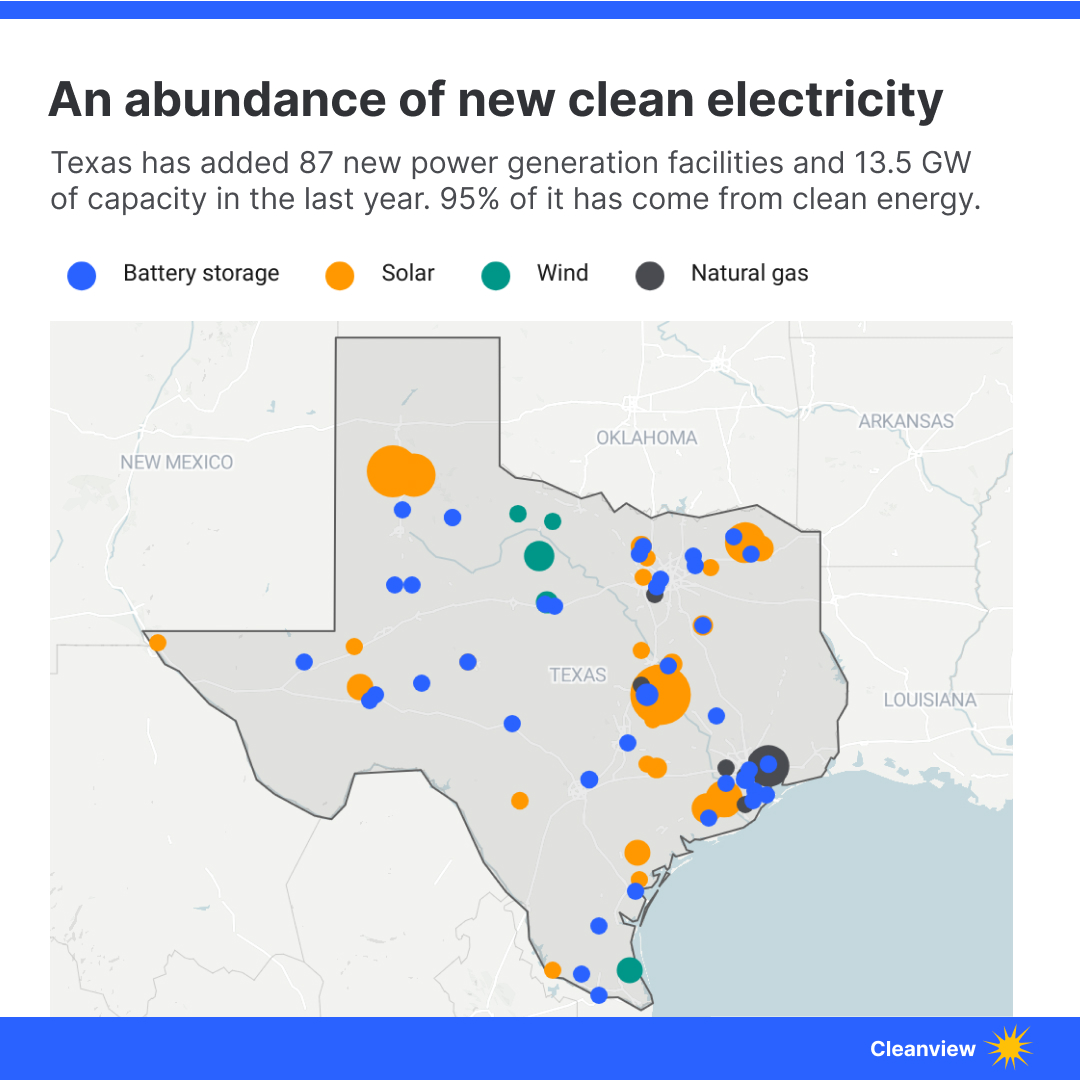
 In the last year, Texas has added 87 new power generation facilities to its electric grid with a combined capacity of 13.5 GW, according to our project tracker at Cleanview.
In the last year, Texas has added 87 new power generation facilities to its electric grid with a combined capacity of 13.5 GW, according to our project tracker at Cleanview. 
 Last month, the US House passed a bill that is projected to reduce solar, wind and battery capacity growth significantly.
Last month, the US House passed a bill that is projected to reduce solar, wind and battery capacity growth significantly. 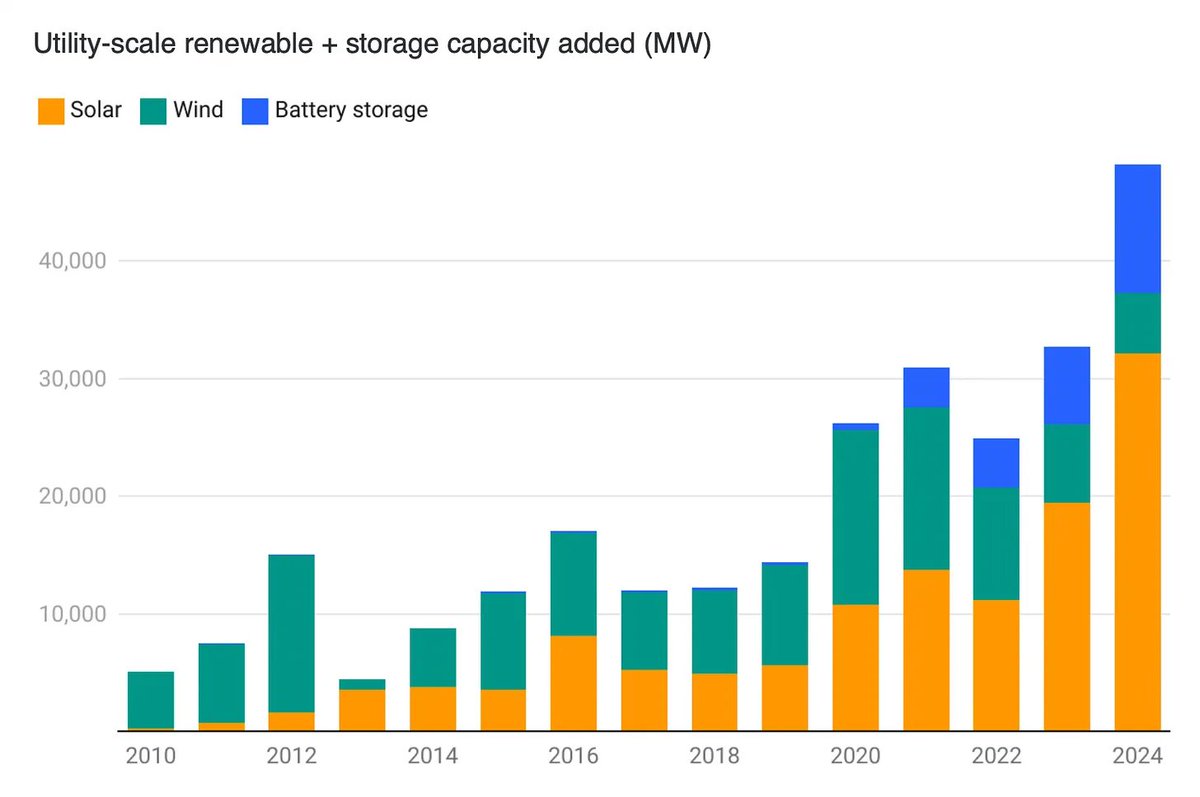
 While the scale of clean energy’s growth in 2024 was remarkable, the fact that clean capacity grew isn't all that surprising.
While the scale of clean energy’s growth in 2024 was remarkable, the fact that clean capacity grew isn't all that surprising. 
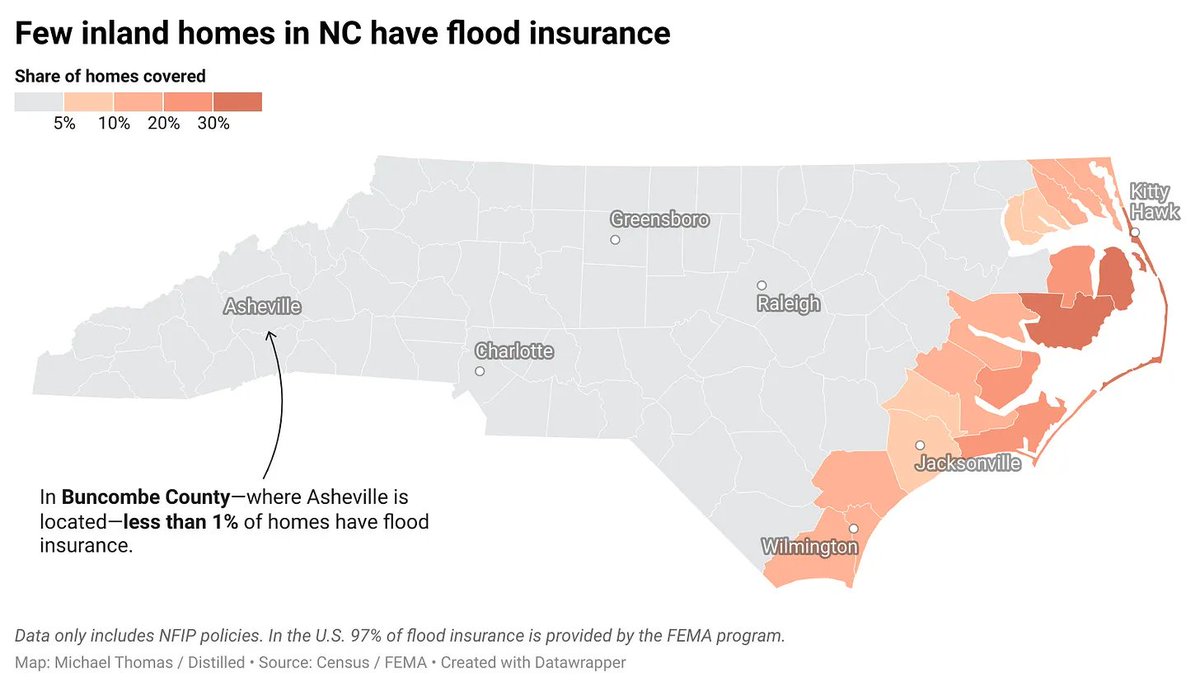
 Take Buncombe County, where Asheville is located, for example.
Take Buncombe County, where Asheville is located, for example. 

 Now is probably a good time to plug my work.
Now is probably a good time to plug my work. 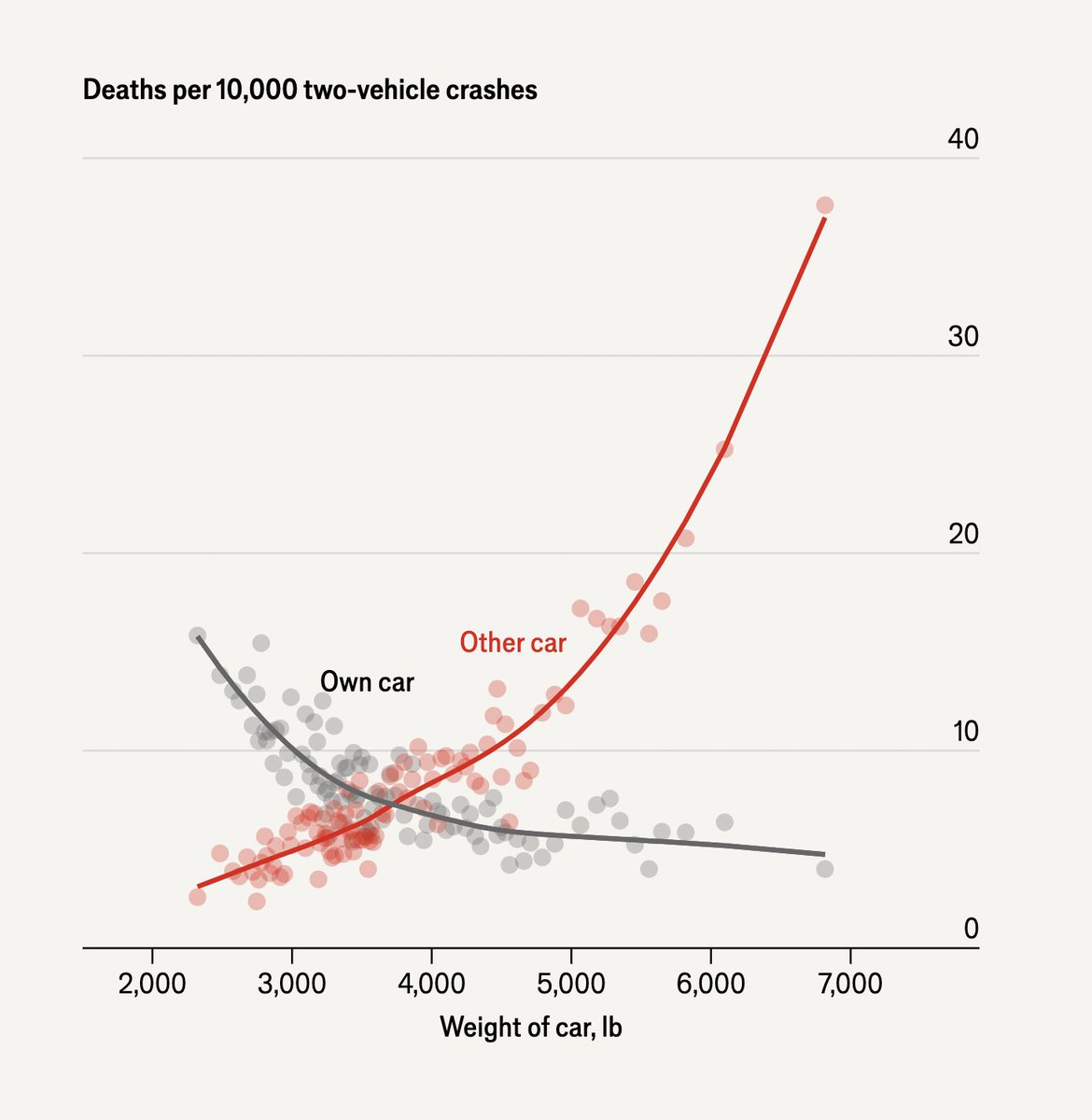
 In the last few decades, the SUV market in the U.S. has exploded.
In the last few decades, the SUV market in the U.S. has exploded.

 @TheEconomist I get the argument that bitcoin miners make for why they should be able to participate in demand response programs.
@TheEconomist I get the argument that bitcoin miners make for why they should be able to participate in demand response programs. 

 Battery storage capacity is growing even faster than solar.
Battery storage capacity is growing even faster than solar.

 Last year, the U.S. added a record 19.3 GW of utility-scale solar capacity.
Last year, the U.S. added a record 19.3 GW of utility-scale solar capacity.

 As I wrote in a story last year, LIB batteries have quickly gone from providing niche grid services like frequency regulation to storing large amounts of power and supplying energy at times of peak demand.
As I wrote in a story last year, LIB batteries have quickly gone from providing niche grid services like frequency regulation to storing large amounts of power and supplying energy at times of peak demand.
 In April 2024, Texas built the most clean energy capacity of any state, adding 435 MW of solar, 528 MW of wind, and 243 MW of battery storage capacity.
In April 2024, Texas built the most clean energy capacity of any state, adding 435 MW of solar, 528 MW of wind, and 243 MW of battery storage capacity. 